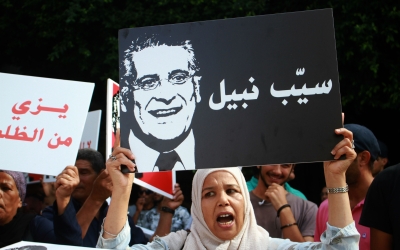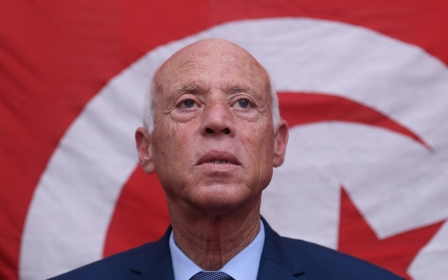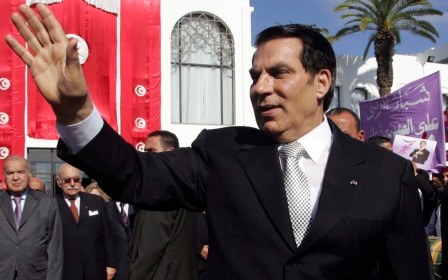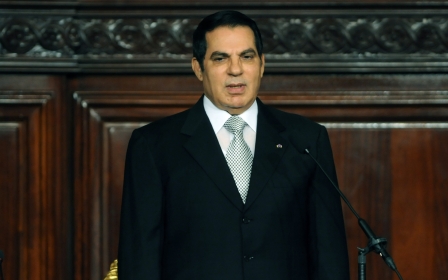Tunisian court rejects release of presidential candidate Nabil Karoui, says lawyer
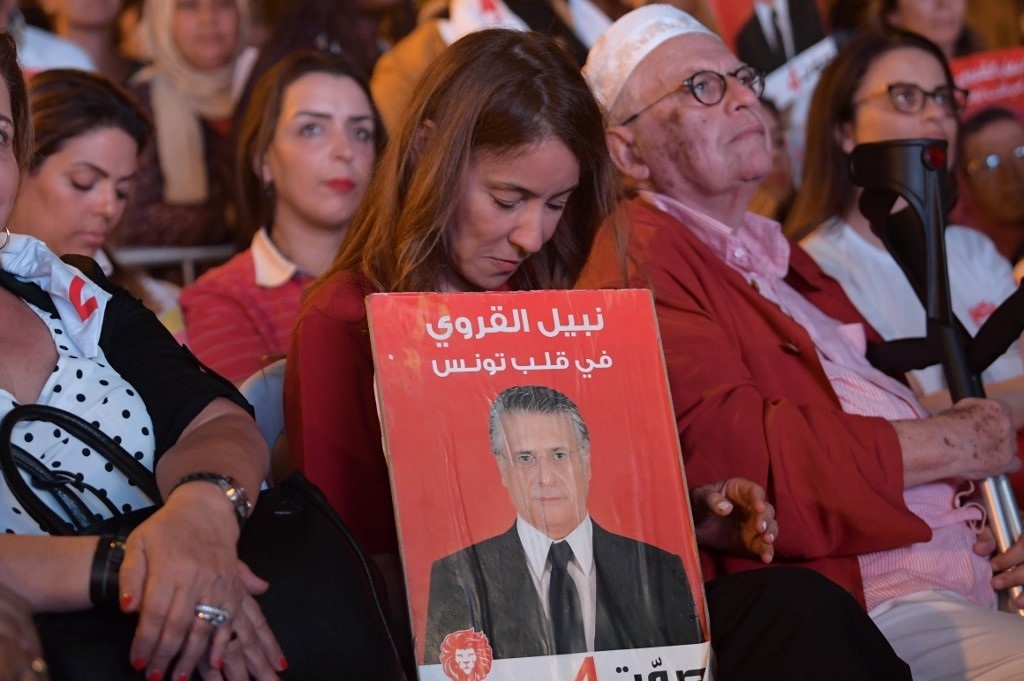
A Tunisian court has denied a request to release jailed media mogul and presidential candidate Nabil Karoui ahead of the country's tightly contested 13 October election run-off, his lawyer told the AFP news agency.
A staff member at Karoui's campaign headquarters who spoke to Middle East Eye on Tuesday evening said his team had just heard the news that he would not be released and did not have an immediate response.
A decision by the Court of Appeals was expected on Wednesday.
Commenting on the outcome, Kamel Ben Messoud, Karoui's lawyer, said the court's decision was "unfortunate" and that he would be meeting with Karoui's legal team to discuss next steps.
Osama Khalifi, a leader within Karoui's party, told local outlets: "We do not doubt the justice system, but this charade continues and threatens the democratic process."
Karoui, 56, was arrested in August on tax evasion and money laundering charges following a complaint filed in 2016 by the Tunisian NGO 'IWatch' - a partner of Transparency International.
Prior to his arrest, Karoui hosted a daily show on his TV channel, Nessma, where he visited and donated food, clothing and medical aid to the country's poorest in the name of a charity set up in memory of his son who died in a road accident.
Boosting his popularity among the country's poor, he stunned establishment politicians by securing the second-highest number of votes in the first round of the presidential election - with 15.58 percent of the vote.
However, his prolific media campaign sparked a huge schism with the Tunisian media regulator, Haica, which raided Nessma's studios in April and also accused Karoui of using his channel and charitable association to promote himself and manipulate the public.
According to the regulator, Nessma had also been functioning without a licence since 2014.
Karoui has protested the charges against him and been on a hunger strike since 12 September. Prior to Tuesday’s announcement, his supporters accused the government of pressuring judicial authorities to upend his campaign, allegations authorities have consistently refuted.
Unusual contest
The media mogul will now still be behind bars when he faces off against 61-year-old law professor Kais Saied on 13 October in the second and final round of the election.
Saied, also a populist, shunned political parties and mass rallies ahead of the first round and has instead opted to pursue a door-to-door campaign to explain his policies.
Sihem Bensedrinne, the head of the Truth or Dignity commission, which probes crimes dating back to 1955, slammed the idea of Karoui serving as Tunisia's next president.
'I don't see how he could serve as our next president'
- Sihem Bensedrinne, Truth or Dignity commission
"In our report, we documented that he received money from Ben-Ali and built his commercial TV empire with public money.
"Tapes, disclosed by Iwatch, show how he has intimidated and threatened journalists. I don't see how he could serve as our next president".
Tunisia is the only country to emerge as a democracy from the Arab Spring uprisings, but the elections come against a backdrop of serious social and economic challenges which have triggered a sharp decline in public confidence in political parties.
Polling suggests that many Tunisians seem to have lost trust in mainstream politicians as living standards in the country have plummeted, with unemployment hovering at 15.5 per cent - higher than it was before the revolution.
Faïrouz ben Salah in Tunis contributed to this report.
Middle East Eye propose une couverture et une analyse indépendantes et incomparables du Moyen-Orient, de l’Afrique du Nord et d’autres régions du monde. Pour en savoir plus sur la reprise de ce contenu et les frais qui s’appliquent, veuillez remplir ce formulaire [en anglais]. Pour en savoir plus sur MEE, cliquez ici [en anglais].


